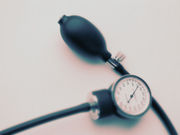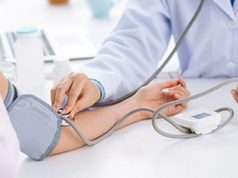SBP up in WKY rats gavaged with spontaneously hypertensive stroke prone rat microbiota
THURSDAY, Feb. 9, 2017 (HealthDay News) — Gut dysbiosis seems to affect systolic blood pressure (SBP) in a rat model, according to an experimental study published recently in Physiological Genomics.
Sareema Adnan, from the University of Houston, and colleagues pooled cecal contents from spontaneously hypertensive stroke prone rats (SHRSP) and from normotensive WKY rats. The rats were treated with antibiotics to reduce the native microbiota and were then gavaged with either WKY or SHRSP microbiota, resulting in four groups: WKY with WKY microbiota (WKY g-WKY), WKY with SHRSP microbiota (WKY g-SHRSP), SHR with SHRSP microbiota (SHR g-SHRSP), and SHR with WKY microbiota (SHR g-WKY).
The researchers found that systolic blood pressure (SBP) increased 26 mm Hg at 11.5 weeks of age in WKY g-SHRSP versus WKY g-WKY (P = 0.02). Compared with SHR g-SHRSP, SBP tended to decrease in SHR-g WKY, although the differences were not statistically significant. On collection of fecal pellets at 11.5 weeks of age there was a significant increase in the Firmicutes:Bacteroidetes ratio in hypertensive WKY g-SHRSP, compared with the normotensive WKY g-WKY (P = 0.042). There was a correlation between relative abundance of multiple taxa and SBP.
“The present study is the first demonstrating a causal role of the gut microbiota in the development of hypertension in the SHR model,” the authors write. “We demonstrate that the SHRSP microbiota is capable of increasing blood pressure in the normotensive WKY parent strain.”
Copyright © 2017 HealthDay. All rights reserved.








